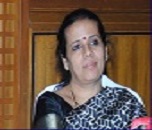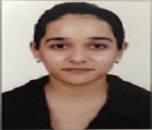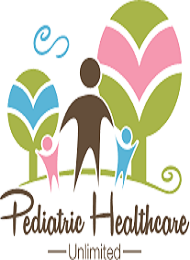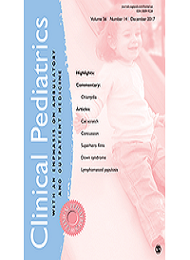Theme: Pediatric Healthcare – Raising the Child
PEDIATRIC HEALTHCARE 2022
- About conference
- Sessions/Tracks
- Market Analysis
- Why to join this conference?
- Abstract Submission Criteria & Eligibility
- Participation / presentation option
- VISA Application
We welcome you all to attend 4th International conference on Pediatrics, Neonatology and Healthcare, which is going to be held on Nov 23-24, 2022 at Paris, France.Theme : Pediatric Healthcare – ‘Raising the Child which fuses incite keynote introductions, Oral talks, Poster introductions and Exhibition.
The principle point of Pediatrics Healthcare 2022 is to investigate the new bits of knowledge into the analysis and treatment in the field of Pediatrics. We welcome attendees, presenters and exhibitors throughout the globe to set up for an exciting and informative conference program embellishing with comprehensive lectures, symposia, workshops on varied topics, poster displays. It also proposes a unique opportunity for the explorers from all over the world to gather, share and become well versed in all the fields of academic circles.
Pediatrics health care 2022 is to get-together individuals in the scholarly world and society inspired by Pediatrics to share the most recent patterns and imperative issues pertinent to our field/branch of knowledge. The conference gathering is extensive and grasps distinctive research practices which chiefly centre around determination, treatment and aversion in infants, children and adolescents.
Why to attend?
International Conference on Pediatrics Healthcare during Nov 23-24, 2022 at paris, France Republic is a unique platform to share the knowledge on current research. The main aim of Pediatric Healthcare 2022 is to discuss the recent approaches/advancements and challenges faced in relevant to child healthcare and medicine. This is your best chance to achieve the biggest collection of members from the Pediatrics people group. Incredibly famous speakers, the latest strategies, advancements, and the most current updates in the field of Pediatrics are signs of this gathering.
Target Audience:
- Pediatricians
- Neonatologists
- Pediatric Physicians
- Pediatric Surgeons
- Child Cardiac Specialists
- Pediatric Gastroenterologists
- Pediatric Hepatologist
- Pediatric Nutritionists and Dieticians
- Pediatric Nurses
- Chemists and Drug Specialists in Pediatric Medicine
- Academic Professionals
- Postdoctoral Medical fellows
- Pediatric Researchers
- Pediatric Students, Scientists
- Pediatric & Medical schools
- Pediatric Associations and Societies
- Pharmaceutical Firms
Pediatrics is the branch of medicine that deals with the physical, mental and social health of infants, children and adolescents. Pediatricians are medical doctors who specializes in the field of Pediatrics. Pediatric care enclose a wide range of healthcare services extending from prevention to the diagnosis and treatment of acute and chronic diseases in children from birth to young adulthood.
Subspecialties of Pediatrics include:
- Neonatology
- Pediatric Cardiology
- Pediatric Nephrology
- Pediatric Rheumatology
- Child abuse
- Pediatric Allergy & Immunology
- Pediatric Neurology
- Pediatric Obesity & Nutrition
- Pediatric Hematology & Oncology
- Pediatric Pulmonology
- Pediatric Psychology
2. Neonatology & Perinatology:
Neonatology is the subdivision of pediatrics that aims to provide intensive medical care to the newborn infants due to low birth weight, sepsis, pulmonary hypoplasia, congenital malformations, prematurity. It is the hospital-based specialty and is usually practiced in neonatal intensive care units. Perinatology is a subspecialty of obstetrics that aims to provide care to fetus, complicated and high-risk pregnancies. Perinatology is also known as maternal-fetal medicine. Perinatologists are specially trained to provide medical services such as diabetic care, management of multiple gestations, level II ultrasound of the fetus genetic amniocentesis.
Related Associations:
Pediatric orthopaedics is the branch of medicine (surgery) that deals with diagnosis, treatment, and management of children's musculoskeletal problems which include evaluating and treating bones, joints and muscle problems. Common orthopedic conditions in children are knee arthroscopy and meniscectomy, hip replacement, joints & bone infections, limb and spine deformities: Club foot, Scoliosis, Fractures, spinal deformity.
Related Associations:
Pediatric cardiology is the subdivision of cardiology which is concerned with the study of disorders and diseases of the heart as well as circulatory system in children within the age limit of 0 to 18 years. Some of the major cardiac problems in children are: Anomalous Coronary Arteries/Fistulas, Anomalous Pulmonary Venous Return, Aortic Stenosis/Bicuspid Aortic Valve, Atrial Septal Defect (ASD, Atrioventricular Septal Defect (AVSD), D-Transposition of the Great Arteries & Ebstein's Anomaly. About one in every 100 chil
Oral hygiene is very important in case of children and parents need to take complete care in this case. Pediatric dentist promote dental health of children from birth through adolescence and serve as educational resources for parents. Thumb sucking habit after the evolution of the permanent teeth, tongue thrusting, lip sucking can lead to dental complication. Tooth grinding, tooth decay and gum diseases are some of the common dental issues in children.
Related Associations:
Pediatric endocrinology is the subdivision of Endocrinology which deals with the diagnosis and treatment of children with endocrine diseases and disorders. Commonly encountered endocrine disorders in childhood are diabetics’ mellitus, hypothyroidism, hyperthyroidism, calcium disorders and disorders of puberty. Obesity is also one of the endocrine disorders, so healthy diet and physical activity is necessary. The main signs include poor growth or abnormal pubertal development.
Pediatric nurses are directed to provide medical care to neonates and children up to adolescence in an in-patient hospital or day-clinic. Duties of a Pediatric nurse are: Normalize the life of the child during hospitalization, minimize the impact of child’s unique condition, respect the roles of the families in the care of their children, prevention of disease and promotion of health of the child.
Types of Pediatric Nursing:
- Direct nursing care
- Neonatal nursing
- Pediatric emergency nursing
- Palliative Pediatric nursing
Related Associations:
8. Pediatric Immunology & Infectious Diseases:
Infectious diseases are caused by microscopic germs (bacteria & viruses) that enter the body and produce harmful consequences. Children are often prone to infectious diseases, as they have less immunity to fight against the foreign bodies. Childhood infectious diseases are chickenpox, measles, mumps, whooping cough, diarrhoea, vomiting. Infection may be caused by bacteria or virus, in some cases it will be difficult to determine the origin but can be diagnosed through the “culture test” of blood or urine.
Related Associations:
Pediatric neurology, or neurological surgery, is the medical specialty concerned with the prevention, diagnosis, surgical treatment, and rehabilitation of disorders which affect any portion of the nervous system including the brain, spinal cord, peripheral nerves, and extra-cranial cerebrovascular system of children. Concussion, neonatal neurology, brain malformations, headache/migraine, metabolic diseases affecting the nervous system, neuro-oncology, sleep disorders, developmental disorders including autism, neuromuscular disorders including muscular dystrophy and congenital myopathies are some of the neurological disorders seen in children. Key treatments for neurological disorders CyberKnife, Deep Brain Stimulation, Gamma Knife Radiosurgery and Vagal Nerve Stimulation.
Related Associations:
10. Pediatric Urology & Nephrology:
Pediatric urology is the subspecialty of surgery in medicine that deals with the disorders of children’s genitourinary systems. Some of the major disorders include bladder control problems, urolithiasis, tumors of kidneys, urinary obstruction. Pediatric nephrology is one of the specialities of medicine that deals with the study of proper functioning of kidneys, prevention and treatment of kidney diseases including dialysis and kidney transplantation. Common renal disorders encountered in childhood are fluid and electrolyte disorders, hematuria/proteinuria, Posterior urethral valve obstruction, Fetal hydronephrosis, Polycystic kidney disease, Multicystic kidney disease, Nephritis.
Related Associations:
11. Pediatric Psychology & Mental Health:
Psychological/mental deals with physical wellbeing and sickness of a child and the connection between mental/behavioural elements and wellbeing, ailment and infection, the most widely recognized mental clutters in children are anxiety issue, depression and attention deficit hyperactivity disorders (ADHD). Pediatric psychology is a multidisciplinary study of both scientific investigation and clinical practice which delivers psychological services to infants, toddlers, children and adolescents.
Related Associations:
12. Pediatric Vaccination & Immunization:
Vaccines play a vital role in keeping the children healthy whereas Immunization is the process of becoming immune to (protected against) a disease. Vaccinations can be done in the early stages of life to protect children before they are exposed to diseases. Immunizations are a cornerstone of pediatric healthcare. The process of immunizations is implemented for the prevention of life-threatening infections was an important driver of improvements in infant and childhood morbidity and mortality.
Related Associations:
13. Pediatric Pulmonology & Allergy:
Pediatric pulmonology is the branch of medicine that provides exceptional care for children with various allergic and pulmonary diseases. Pediatric pulmonologists and allergists diagnose, and care children affected with various respiratory complications and allergies such as pneumonia, bronchitis, common cold, influenza, food allergies, hay fever and croup. Recurrent respiratory tract infections are one of the most frequent reasons for pediatric visits and hospitalization as the immunity in children is low.
Related Associations:
American Society of Pediatric Hematology/Oncology; Association of Pediatric Hematology/Oncology Nurses; ASK Childhood Cancer Foundation; Bear Necessities Pediatric Cancer Foundation; Brain Tumor Foundation for Children; Child Health International Foundation; Advanced Pediatric Emergency Medicine Assembly
14. Autism:
Autism or autism spectrum disorder (ASD) is a broad range of conditions characterized by a serious developmental disorder that impairs the ability to communicate and interact, challenges with social skills, repetitive behaviour; speech and nonverbal communication. Several medical and mental health issues frequently accompany autism such as epilepsy, OCD, gastrointestinal problems and feeding.
Related Associations:
American Society of Pediatric Hematology/Oncology; Association of Pediatric Hematology/Oncology Nurses; ASK Childhood Cancer Foundation; Bear Necessities Pediatric Cancer Foundation; Brain Tumor Foundation for Children; Child Health International Foundation; Advanced Pediatric Emergency Medicine Assembly
Pediatric Dermatology deals with the surgical and non-surgical aspects of skin, nails, hair (scalp) and its diseases. A pediatric dermatologist is a medical doctor who treats children with these diseases. This field encloses the treatment of complex diseases in neonates, hereditary skin diseases or genodermatoses, and the many difficulties of working with the pediatric population.
Related Associations:
American Academy of Pediatrics; International Pediatric Association; Indian Academy of Pediatrics; European Pediatric Association; Canadian Pediatric Association; Academic Pediatric Association; The Asia-Pacific Pediatric Association; Indian Association of Pediatric Surgeons; American Academy of Pediatrics; Children's Cardiology Associates
16. Childhood Obesity & Nutrition:
Childhood obesity is one of the major public health crises nationally and internationally. It is the condition where the child put on weight above the normal weight which he/she must be for their height and age. It is a serious medical condition that has impact on both physical and psychological condition of a child. The effects of childhood obesity can persist well into adulthood and more likely to develop several non-communicable diseases at younger age. So, parents should help children develop healthy eating habits, stay active and reduce sedentary time. Proper nutrition services are important when it comes to children, since they are habituating life-long patterns that will be very difficult for them to break later and in preventing disabilities as well as in the treatment of chronic illness. Poor nutrition leads to an increased risk for developing health conditions such as high blood pressure, cardiovascular disease, diabetes, osteoporosis and even hearing loss.
Related Associations:
National Children's Cancer Society; Neuroblastoma Children's Cancer Society; International Confederation of Childhood Cancer Parent Organizations; Pediatric Cardiology Associates; The Pediatric Cardiac Intensive Care Society; Society of Developmental and Behavioural Pediatrics; Advanced Pediatric Emergency Medicine Assembly
17. Pediatric Hematology & Oncology:
Hematology is the branch of internal medicine that deals with the cause, diagnosis, treatment and prevention of the diseases related to blood. Pediatric hematology is the subdivision within hematology that is concerned with the blood diseases and cancer related to children. Some of the blood disorders are inherited such as Fanconi anemia. Due to poor nutrition children are often prone to blood disorders. Pediatric oncology is concerned with the cause, diagnosis and treatment of cancer in children. Mortality rate of children is more in under developed country when compared to developed country due to limited resources. Most of the common types of cancers in children are leukemia, lymphomas (hematologic oncology) and brain tumors. Treatment includes chemotherapy and radiation therapy.
18. Pediatric Gastroenterology & Hepatology:
Pediatric Gastroenterology is the subspecialty of pediatrics and gastroenterology that focuses on the disorders of digestive system of children. The proper function of the gastric tract and the internal health of a child are related to the nutrition it receives from its mother or its mother receives. There are less common issues that can cause children to have digestive problems, including: celiac disease, bowel obstruction, pancreatitis, hepatitis, Crohn's disease & ulcerative colitis. Pediatric hepatology is the subdivision of internal medicine that focuses the study of liver, gallbladder, biliary system and pancreas including diagnosis, treatment and management of their disorders. ne Congress
Related Associations:
A rheumatologist is a paediatrician who is specially trained to diagnose and treat musculoskeletal diseases and systemic autoimmune conditions commonly referred as rheumatic disease which include joint, muscles and bone disorders. Juvenile idiopathic arthritis is considered as the most common form of arthritis. The treatment includes medication, physical therapy, splints, and in severe cases surgery to reduce swelling, relieving pain, and maintaining full movement of joints.
Related Associations:
Child abuse or child maltreatment is causing a physical, sexual or psychological harm to a child, and can occur in a child's home, or in the organizations, schools or communities the child interacts with. Parents must educate the children to spot the signs of abuse often children are afraid to share these incidents so they stay silent as they may feel trapped or due to fear and this is one of the reasons why only few incidents are reported, and many more cases are undetected. If the child is not sharing these matters with their parents, it’s the responsibility of the parent to notice the change in their behaviour and take necessary action.
Related Associations:
Preventive pediatrics refers to prevention of disease and promotion of physical, mental and social well-being of children with the aim of attaining a positive health. By preventing disease, the child can attain its genetic potential. Prevention of disease can be best achieved through primary care activities such as growth monitoring, immunization, health education, and promotion of breastfeeding. The concept of preventive pediatrics is broadly divided into antenatal preventive pediatrics and postnatal preventive pediatrics. Preventive care aims to keep away the occurrence of diseases, to detect a disease, to avoid or delay complications when the condition is already present, to avoid premature deaths and to improve efficiency. The objective of maternal and child health program is to reduce maternal, infant and childhood mortality, and morbidity to promote reproductive health.
Related Associations:
22. Pediatric Emergency Medicine:
Pediatric Emergency Medicine is the branch of medicine that deals with providing highly specialized acute health care to children of all ages and developmental levels, which includes triage, stabilization, diagnosis, treatment and appropriate follow-up care. These problems are commonly serious and may be life-threatening. The Pediatric Emergency Medicine subspecialist is dedicated to progress the science of the field through primary and multidisciplinary research.
Related Associations:
Pediatric physiatrists are physicians who specialize in the rehabilitation and medical care of children with brain injuries, spinal cord injuries, neuromuscular disorders, and an array of musculoskeletal conditions. The Child Development and Rehabilitation Center (CDRC) combine clinical excellence with innovative research to provide the best care for children with special health needs.
Recommended Conferences:
Related Associations:
Middle East and Africa pediatric healthcare services advertise is developing consistently. Pediatric medical care refers to the health of the children, infants and adolescents. Pediatrics not just manages the physical and psychological wellness yet additionally social wellbeing of children. As per UNICEF, while the childhood death rate has been dropping in the Middle East since 2000, 415,000 kids in the locale keep on dying each year prior to their fifth birthdate. Middle East and Africa contain around 2% of worldwide social insurance use which anticipated that would develop consistently. Mechanical progression and government activities to enhance pediatric healthcare services area are driving the development for pediatric social insurance in Middle East and Africa. Market for pediatric medical care in Middle East and Africa we US$ 48 billion of every 2016 and anticipated that would achieve US$ 63.6 billion by 2023 at CAGR of 4.1%.
Mostly children are prone to infectious diseases. This survey aims to give a descriptive summary of infants, children suffering from infectious diseases world wide. These diseases are in terms infectious and deadliest among children and infants if left untreated. Though vaccinations, treatments are available for these types of diseases, if not treated earlier causes death. Most of the infectious diseases are contagious. As children has less immunity to fight against the foreign bodies they are easily affected by these diseases.
The healthcare condition of the children can be classified into acute and chronic illness. Acute condition (such as malnutrition, diarrhoea, sepsis etc) are temporary in nature and require major primary care of child during the diseased condition. Chronic conditions (such as asthma, arthritis, development disability) are serious and required high cost for treatment. Innovations in medical technologies and government initiatives regarding child health care, are expected to offer huge opportunities for market expansion.
We are pleased to invite you to the 4th International Conference on Pediatric, Neonatology and Health care(Pediatric healthcare 2022) to be held in Paris, France. Nov 23-24, 2022. Pediatric healthcare 2022.will be a gathering of Pediatric researchers, scholars, academicians, practitioners, delegates, students and business personnel to present all the updates in Pediatricscience. Join us to learn, share and listen to the experts about their recent outcomes and their future expectation.
Learn and share through Workshops and Interactive Sessions:
Workshops and interactive sessions involve extensive interaction between the presenters and delegates around an idea or hands-on experience of a practice. These interactive sessions may take the form of a panel, staged conversation or debate – all involving substantial interaction with the participants. Therefore a variety of sessions, keynote lectures, symposiums, workshops and poster presentations will allow you to share and present research to your colleagues from around the world.
Meet your subject matter experts:
Subject Matter Experts will lead you in current research & development. They help you with research queries, and content, identify the objectives, and ensure your research is scientifically acceptably.
Pediatric healthcare 2022 has its specially designed networking and round table discussion session, which brings together the clinicians, health professionals, and patients on the front lines of Pediatric to learn from each other and build professional networks and collaboration.
Pediatric healthcare Conferences organizes about 3000+ global events including international conferences, symposia, trade shows, workshops, exhibitions and science congresses in all the major scientific disciplines, including medical, pharmaceutical, technology, clinical, engineering, and business management & life sciences globally. Conference Series is conducting several.
Pediatric healthcare events globally focus primarily on neurology, pediatric surgery, pediatric-oncology. These Pediatric healthcare conferences witness researchers, academic professors, pharmacists, physicians & surgeons who endeavour to disseminate their research experience to escalate the forthcoming research ideas.
Pediatric healthcare Market embraces many therapeutics used for the treatment of several Pediatric disorders. The novel pipeline, patent expiry of blockbuster drug and new drug approval has affected the Pediatric. market and it is estimated to grow through the forecast period. The biopharmaceutical companies are investing substantially in the development of advanced therapeutics for the treatment of neurological disorders/diseases. Government organizations are sponsoring research and development activities related to neurology research. These factors are impacting the neurology market positively coupled with the growing prevalence of neurological disorders. The global neurology market is growing due to an increasingly ageing population, expanding awareness regarding mental and neurological illness, increasing health insurance reforms and constant research and development in neurology by pharmaceutical companies. These factors and technological advances such as biomarkers, mobile applications, 3D printed drugs and wearable technologies used to monitor and treat patients diagnosed with neurological disorders are expected to drive the neurology drugs industry.
PRESENTATION REQUIREMENTS:
- Presenting authors are responsible for registration, travel, and hotel costs. Note: Those with accepted abstracts will receive an acceptance mail allowing them to register for the conference.
- Abstracts will be compiled and conference books are made available to participants at the conference.
- Any presenter who is unable to attend should arrange for another qualified individual to present the paper/poster in question. If such a change is necessary, please notify our conference team
SUBMISSION OPTIONS:
- Oral paper presentations will have 30-minute time slots and be clustered by theme into sessions. The keynote session will have a 45-minute time slot, the workshop/ special session will have a 60-minute time slot and the symposium will have a 60-minute time slot followed by a 5-minute Q&A session.
- Graduate & Masters's students are eligible to submit their abstracts under the poster and e-poster presentation category.
- PhD students are eligible to submit their abstract under the special YRF (young researcher’s forum), poster and e-poster presentation category. NOTE: YRF category includes short oral presentations, especially for Ph. D. students
- Extended abstract: Submissions should utilize the Abstract Template. Papers submitted in this category may represent original empirical research, theoretical development, reviews, or critiques.
Participation / presentation option
Oral presentation: Oral Presentations may include the topics from researches, theoretical, professional or private practices in a concise manner. Individuals with personal experience are also welcome to present personal experiences or narratives which help others in everyday life. Speakers with a 30-minute slot should plan to speak for 20-25 minutes, and Keynote speakers should plan to speak for 40-45 minutes, with the remaining time to be used for questions and discussion by the Session Chair.
Workshop: For workshop presenters also, the topic of the talk will be the same as an Oral presentation with more specialized techniques and detailed demonstration. The generalized time duration for a workshop presentation is about 45-50 minutes. Interested participants can join with their respective team and present the workshop with their research coordinators with special group waivers on registration.
Poster presentation: Student Poster Competition will be organized at the Pediatric healthcare 2022 conference is to encourage students and recent graduates to present their original research. Presenters will be given about 5-7 minutes to present the poster including questions and answers. Judges may ask questions during the evaluation of the presentation. This is an opportunity for young scientists to learn about the recent findings of their peers to increase their capacity as multidisciplinary researchers. Poster displays will be in hard copy format of 1x1 M long.
For more details regarding Poster Presentation and Judging Criteria view Poster Presentation Guidelines.
Webinar: The webinar presentation is designed for those interested attendees who cannot join in person due to schedule conflicts or other obligations. In this option, the presenter may record the presentation and their presentation will be presented in the Webinar presentation session.
E-Poster: e-Poster is also similar to the webinar presentation. In this session, their presentation will be published in the form of a poster in the conference website and the presenter abstract will be published in the conference souvenir and journal with DOI.
Exhibition: Pediatric healthcare 2022 has the opportunity to exhibit the products and services from commercial and non-commercial organizations like Drug manufacturers, Clinical Trial Sites, Management Consultants, Chemists, Pharmacists, Business delegates and Equipment Manufacturers.
To know more about exhibitor booth details and benefits visit WHY TO EXHIBIT WITH US?
Send your queries to [email protected]
Advertisement: The conference program is a valuable resource that all attendees refer again and again as they navigate the conference. Advertising in the conference program is a great way to market and can help you secure long term business.
Send your proposal to [email protected] to know the available advertisement options and prices
Premium Sponsorship package
Additional Sponsorship package
Mail the program manager at [email protected] or WhatsApp on (+44 1371 290000 to know more about the sponsorship packages.
- Pediatric Health care 2022 organizing committee hereby reiterates that we are NOT authorized to assist with any Visa application works. You may be required to submit a Letter of Invitation, Letter of Abstract Acceptance and Registration Payment Receipt to the embassy.
- Letter of Invitation: A Letter of Invitation is proof that your paper submission and registration application are accepted by the conference committee board. It will be stated in English and may help with your visa application.
- Token Amount: Token amount of USD 150 can be paid and a payment receipt can be proof of payment and may help with your VISA application.
- **SHOULD YOUR APPLICATION BE DENIED, THE PEDIATRIC HEALT CARE 2022 ORGANIZING COMMITTEE CAN NOT CHANGE THE DECISION OF THE MINISTRY OF FOREIGN AFFAIRS, NOR WILL WE ENGAGE IN DISCUSSION OR CORRESPONDENCE WITH THE MOFA OR THE EMBASSY ON BEHALF OF THE APPLICANT. THE REGISTRATION FEE WILL BE REFUNDED WHEN THE VISA APPLICATION OF THE INDIVIDUAL IS DENIED AND SHOULD SUBMIT VISA REJECTION PROOF**
Conference Highlights
- Pediatric Healthcare:
- Neonatology & Perinatology:
- pediatric Orthopedics:
- Pediatric Cardiology:
- Pediatric Dentistry:
- Pediatric Endocrinology:
- Pediatric Nursing:
- Pediatric Immunology & Infectious Diseases:
- Pediatric Neurology:
- Pediatric Urology & Nephrology:
- Pediatric Psychology & Mental Health:
- Pediatric Vaccination & Immunization:
- Pediatric Pulmonology & Allergy:
- Autism:
- Pediatric Dermatology:
- Childhood Obesity & Nutrition:
- Pediatric Hematology & Oncology:
- Pediatric Gastroenterology & Hepatology:
- Pediatric Rheumatology:
- Child Abuse & Prevention:
- Preventive Pediatrics:
- Pediatric Emergency Medicine:
- Pediatric Rehabilitation:
To share your views and research, please click here to register for the Conference.
To Collaborate Scientific Professionals around the World
| Conference Date | November 23-24, 2022 | ||
| Sponsors & Exhibitors |
|
||
| Speaker Opportunity Closed | |||
| Poster Opportunity Closed | Click Here to View | ||
Useful Links
Special Issues
All accepted abstracts will be published in respective Our International Journals.
Abstracts will be provided with Digital Object Identifier by













